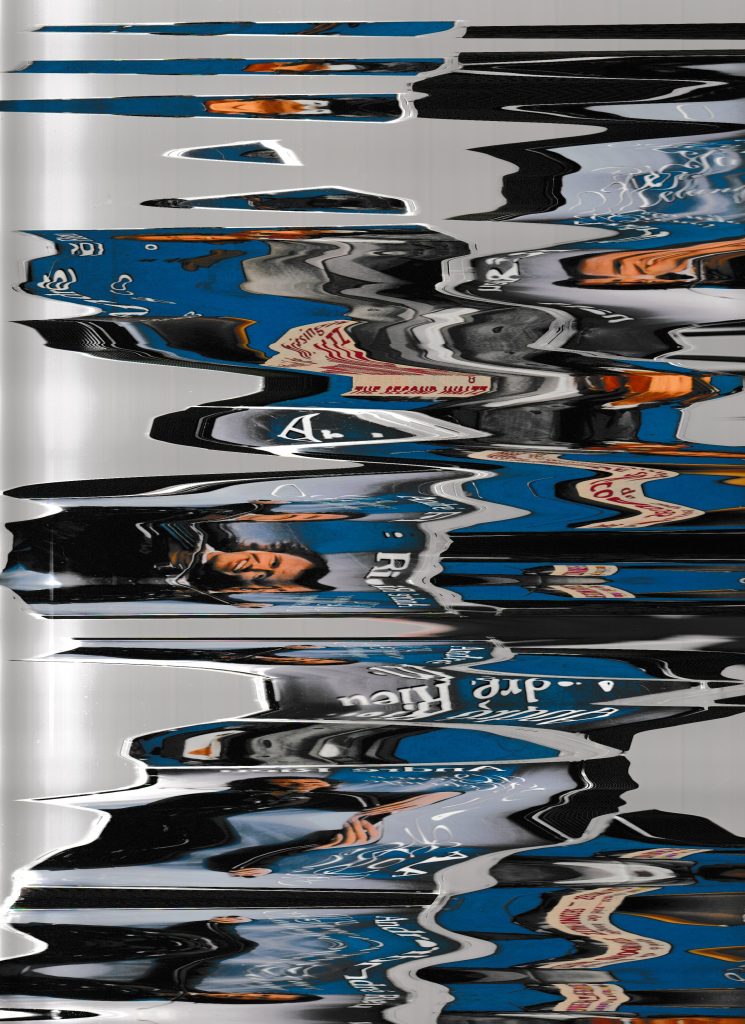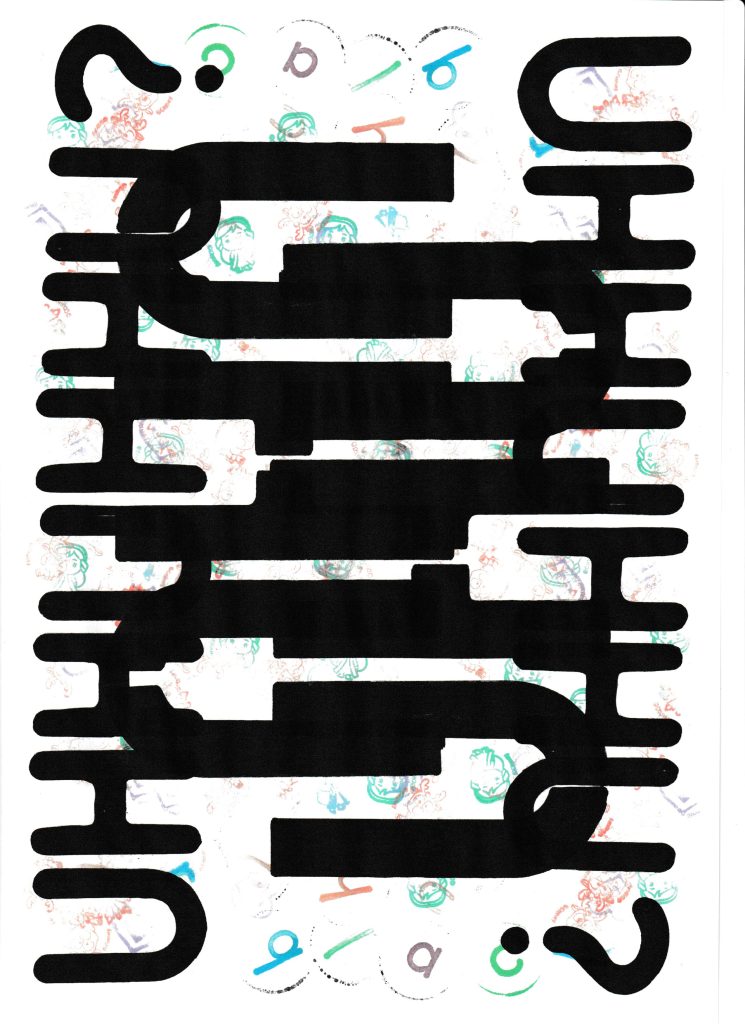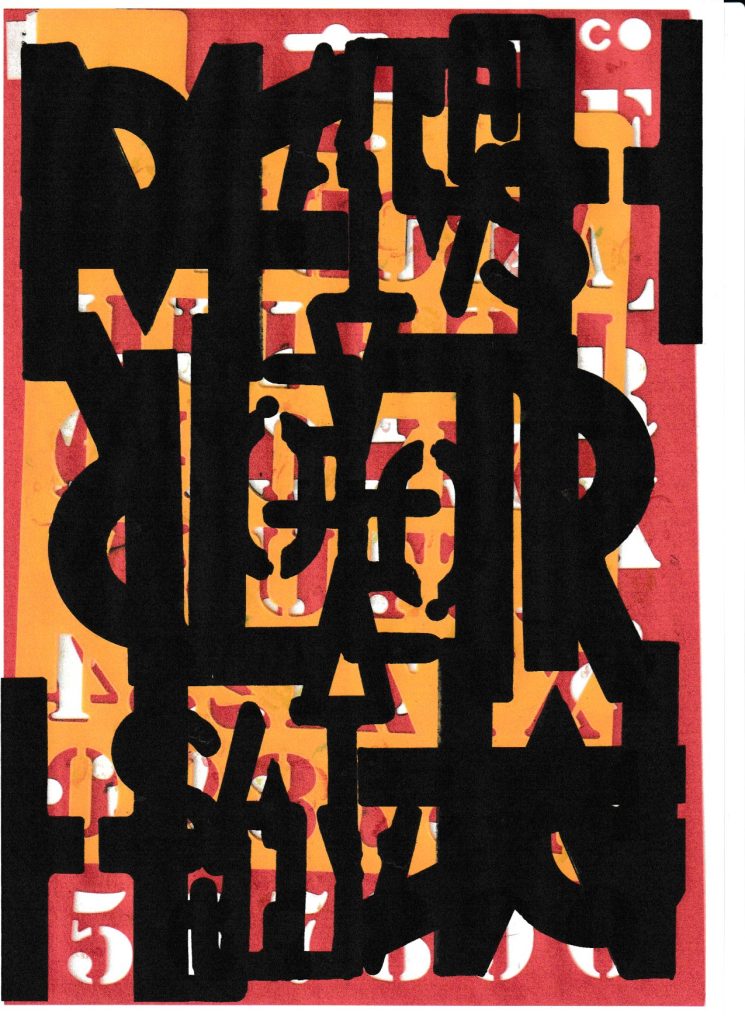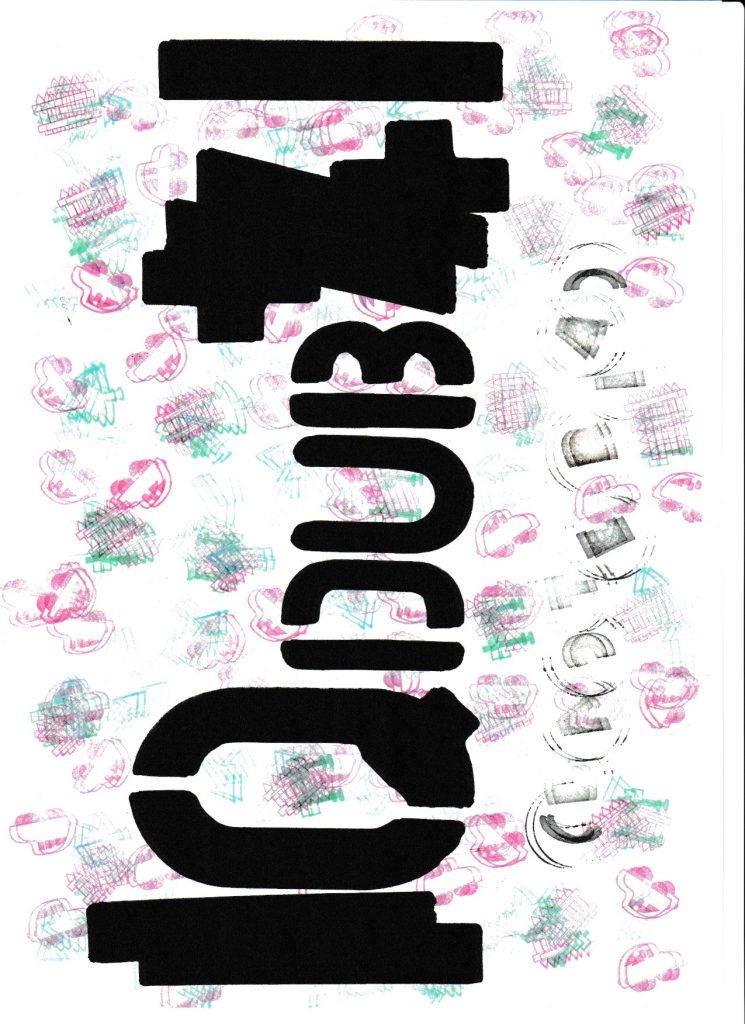Telepath
i
What would you choose if a look could kill,
turn the tide or save the day.
Reverse fortunes on the head of a sixpence.
Turn your only godchild to stone
(that she might have a change of heart)
or do you stare helplessly
into the abyss – immobilized by your sense
of historical inevitability.
ii
Frau Demuth already sees what will become
of Marx’s first biographer
on the day she announces her engagement
to Doctor Aveling (since loneliness
can’t be cured by a kiss)
but for all her knowing looks, she can only study
the waltz of shades unraveling
during Sunday dinner at Regent’s Park.
Second sight – powerless to stop time,
despite the ‘sure thing’
of a spectre haunting Europe
or the shabby ghost of a third Jewish messiah
whose ideas would one day divide the world.
iii
Any wonder why Eleanor Marx fell
through the looking glass. Crashing from nervosa
to love. Love to nervosa. And nervosa
back to love again.
Impossible, in all the after dinner conversation,
to tell which from which.
Only that the phrase: ‘this looks familiar,’
goes unheard by those whom we would save
from themselves,
if only they would hear us.
Cosmic Cradle
i
What shall we do with our nameless child –
so much a part of us? So much more, than loss of hope
for Karl and Jenny, or the burial record
of an invisible girl? She who holds both dissonance
and harmony (rose and wreath
in her tiny hands) as we lay her to rest
under indifferent skies, but no one knows why
a dying girl’s face tilts
towards the moon.
ii
Last night, the girl we already grieve
as a lost galaxy – crawled from her crib to sing
as a star – spreading her wings
in exquisite poverty. Here at the world’s edge,
her breath leaves semitones of light
on the latticed glass.
Here, nothing is more important
than music and moonlight.
Shining Light
We have learned your name by heart,
Helene Lenchen Demuth.
And we can tell you that Demuth,
from the Middle High German, ‘diemuot,’
or ‘demuot,’ is a nickname
given for a humble or modest person.
How do we know, only because
there’s no equivalence for ‘Lenchen’
in the Indo-European vernacular,
but ‘L’ is always for love,
which you give to all you encounter.
‘E’ is for equal footing, because you meet
us all on a level playing field.
‘N’ is for necessity, because the realm
of needs, can never be breached
by the leap to freedom alone.
‘C’ is for change, because you adapt
to both ebb and flow. ‘H’ is for heart,
because you always make a home
out of hope. ‘E’ is for endure,
because we can never forget you.
‘N’ is for nodal point, because going on
is the only option to not going back.
Prelude in E Minor Op. 28 No. 4
for Nora
What is this sadness that invites us
to withdraw into the magic
of minor keys. Are we the astronomers
of descending melodies, discovering
the faintest of stars. Is this what loneliness
sounds like. Chord chains torn
from another dimension. As if the heart,
(cleaved from the body) still grieves alone
in a Warsaw crypt. Tomorrow we smile
again, for tonight we live
our saddest dreams.
Diamonds and Water.
The book of your life is hardly written
yet you look at the world
with all the curiosity life affords.
And though you sit and watch in silence,
you reject the impasse
of a world that defies kindness.
Understanding the secret
ballot that ties the big stick to diplomacy,
or as democracy’s diary
would have it: ‘All for ourselves
and nothing for other people.’ A maxim
so deeply rooted, so definite
in the division of worlds, it chaperones,
protects and champions
portfolio investment in art, repo-markets
and perfect competition in a face off
with the tasteless tyranny
of the ‘herd.’
You know it’s not your job to think,
only to follow orders,.
yet you have devoted your heart
to the struggle to shape your own ideas,
in your transformation
from wide-eyed peasant girl
to radical, confidante, and public enemy
with Soho’s most dangerous
philosopher. A dissident Jewish doctor,
forced to pawn
his only suit of clothes
to buy a coffin for his unnamed daughter –
unwrapping the ultimate paradox
of value.
Thistle in Humble Soil
Perhaps your closed crown defies the wind
in a field where shadows bully
the faithless, but we live
here where faith is currency
to silence the Aspen’s wild pulse.
Where is the ‘doing’ word that gives us
the upper hand? We speak
while we still have use of our tongues.
In less than a heartbeat
your spiny leaves will yield
their armor under the heavy boots
of Caledonian foresters,
but your magenta crowned florets will prevail
in the field’s heart as if poised to mend
the world. You who thrive
in the barest of ground, rise up again
in winter’s drifts. Testament how we live
to fight another day.
Helene Demuth Notes A Change of Heart
Q. How do you turn down a dialectical thinker
with a hard on for a new idea?
A. Tell him the dialectics of hope turn out to be
nothing more than the interpenetration
of id and ego. You can’t always hold back
the tide, but you can always muddy the waters
by taking refuge in the greatest good
for the greatest number. One death is heroic.
Two deaths, a tragedy. Better to be dissatisfied
as Socrates, than satisfied as a pig.
A qualitative leap between, ‘I have begun
to long for you.’
And, ‘I who have no need.’
Venturing Beyond
You are not a peasant girl from Sankt Wendel,
Housekeeper or fellow traveller.
You are not your age, or even ageless.
You are all the people you touch
when other people find them untouchable.
All the smiles you bring to others
when smiling is felt subordinate to living.
You are the promises on both sides
of assonance and dissonance.
You are the discontent which belongs to hope.
You are the tears of Niobe when pride takes a fall.
You are the verity of pride
when pride surrenders to pity.
You are all children that are never lost
because you are reborn in the image of children
(the Not-Yet-Conscious and Not-Yet-Become)
on the horizon of all being.
You are the one who changes
into what they really are, what they can really be.
The forward dreamer, who is yet to break
through into words.
Van Gogh’s Irises
Even in La Villle d’Amour, the state of emergency
is not the exception but the rule.
Think of the continuous flow of empty time
and the tiger’s leap into the thickets of long ago.
Think of two hundred canon on the brow
of Montmartre. Of the sixty-four days redeeming
the past in service of the present.
Think of blue irises at the Wall of Love
and the words ‘I love you,’ on three hundred tongues.
Think of purple irises uniting springtime love
with the Communard’s Wall.
Think of the history of civilisation
written in blood. Then think of the future as a flower
turning towards the sun – rising in the sky
of a history – yet to be written.
Angelus Novus
Art does not reproduce what we see, rather, it makes us see.
Paul Klee
All art is metaphor. Even when it evokes the union
between progress and catastrophe
Time in need of salvation, an ancestor
in need of awakening, or an angel thwarted
by war and civil war. A storm cloud
blown in from paradise –
trapped between future past and future present.
Suspended in the struggle of empty-time.
Staring towards the horizon, saying something
profound. Awaiting an answer, beyond
the artifice of perception, as she turns her thoughts
away from internal flight.
The West is the best. The West is the best.
Here! Here! Let’s hear the rest! Light at the end
of the tunnel – the only extraction now
from time in a cage.
What is the Name of this Poem?
i
Your social aims may be fashionable
and indeed, admirable, but no amount of political cheer leading
can prepare you for the darkness
of the lived moment. If semiology is a negation –
no amount of words can expurgate, refine
or reform the shit shovel. What is
‘ghost forest’ for you is only a private metaphor
for desertification.
An exile from the ancient city of Aleppo,
might well be ‘displaced,’ but any politically correct verbiage
belies the human dimension of losing one’s home,
one’s family and being compelled
to live in a skip or public toilet like an alley cat.
A rebel from Mount Simeon, might well be a ‘job seeker’
to you, but any attempt to dress ‘stateless nationals’
as anything other than ‘stake holders’
will be met with derision from the floor. Since a reserve army
of unemployed is always good for business.
ii
If thought itself can be called a negation:
what of unsustainability and over-production?
Since no concept can articulate the whole relationship
vis-a-vis man and Nature – the semiotics
of exhuming the dead or saving the planet to secure a home –
will be met by an irresistible canon ball
fired at an immovable post. Positing truth itself
is negative – insofar as it presupposes
something else is not true.
Shamanic Dance Sublation
for Douglas Colston & Dylan Murphy
i
O’ pliable experts in humanity. You who proclaim
the end of history. You who mop the brow
of Nero (bless the mob as you talk our dreams to sleep)
hold a noose over the past, as if to cut a deal
with the future. You who watch Rome burning
while the tyrant fiddles, if only to observe
the facts. You who say nothing of master and slave,
lost peoples, stolen lands. Mouthing
those heroic last words: ‘What an artist dies in me,’
as if to turn language and art into consumables – buy up
the last innocence of thought. You who procure
freedom like a bestiarii in that chamber of horrors
we call the Circus – for the age-old celebration
of ‘business as usual.’ In the prison of apprehension
we can hardly move, let alone breathe freely,
but history doesn’t end in triumphalism for one class
or nation over its rivals. It is open to the future
precisely because we’re surrounded by possibility.
Because agency suggests the content
of the future – because the ‘mystical fire’ of the soul
lives forever in the recall of night eyes.
In the constellations of Orion and Cassiopeia.
Where we dream and we remember:
Nature and human nature are opposite sides
of the same nature because we still live in a prehistory
that only stands because we are yet to grasp
who we are. What we might be without constructs
and aggregates – the esoteric architecture
of studio, stadia, steeple, church. The appropriation
of man by man. Division and progress. Progress
and division.
ii
To know a thing is to know its end but the quest
for knowledge is not conquest of the unknown
but a journey through the unknowable.
Being moves through time – from the Servile Wars
of Spartacus to the Peasant Revolt,
from the beheading of a Cavalier King to the shootings
of the Tsar and Tsarina .But time only remains
as a function of being. The real antagonism for the cat
in the box is living. In the boardrooms of Titanic,
progress implicates itself as problem
and solution, but the solution remains the problem.
If we are to translate the world as we change it,
we must learn how observation weasels out
of objectivity. In the bordellos of objectivism,
we must renegotiate the objections to knowledge
over function. Where science serves myth
and myth maker, (which only paves the way
for more whoring) the self-encounter is not quantitive
or absolute, but rebellious because it puts no price
on sovereignty. S is not yet P,
but when we change subject and predicate,
we change how we see the world. Age and death
can do no more to define us because the ‘Now’
is our time. The locus of Winstanley’s diggers
(which is Not Yet articulated)
is beginning to carve the skyline of the future
from the vanishing point of the past into the horizon
of the present. The sky in Heraclitus reminds us
how flow and flaw reveal the path ahead.
We find ourselves in the places where we were most lost.
iii
We find ourselves in the Shamanic dance
of ancestors, in the Ghost Dancers at Wounded Knee –
in moments torn from time, because being
and time are tied to a tug of war in the infinite
possibilities of the finite. True genesis (the creation
of man by man) does not call for gods.
It is not at the starting gate but the finish line
because freedom is not the fabled flower of immortality
but the action of picking the wild flower
from the chain – the present moment fulfilled
in the rupturing of empty time.
In the leap between the rebel dead and the Novum.
Fearing the past only petrifies the past
until slave and rebellion are redeemed in the present,
because the past is only a rebellion
for memory until it is re-enacted in the world.
Rebellion not only pervades the past – it proposes
the future. Reminds us of the light
at the mouth of the cave, because the sun
(which is yesterday’s memory) ascends in the daydream
of childhood. In the homeland of all living beings
where man is yet to belong. As the slave army turns
to the sun, so the past turns to us
before it threatens to disappear – because healing begins
in the rebellion of the fragmented mind
and we are the creators
of miracles.








